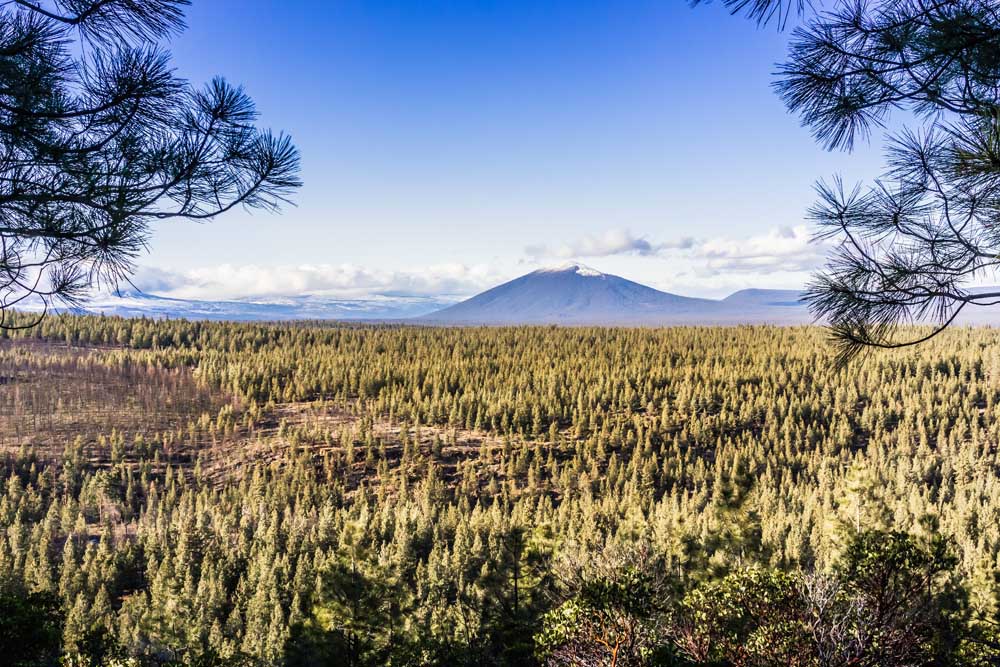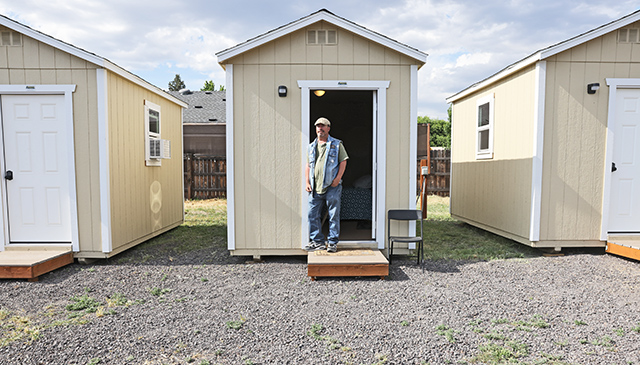Plan to sell public lands sparks backlash in Central Oregon
Published 12:08 pm Friday, June 20, 2025

- A view from the Whychus Creek Overlook Trail in the Deschutes National Forest.
President Donald Trump wants to sell off public land — including Forest Service and Bureau of Land Management land — to offset sweeping tax cuts. If his plan is approved, large tracts of Central Oregon now open for public use could end up in the hands of developers and loggers.
Details of the plan are laid out in the reconciliation budget released last week by Utah Senator Mike Lee, chairman of the Senate Energy and Natural Resources Committee. The bill includes a section that would force both the U.S. Forest Service and Bureau of Land Management to sell public lands.
Oregon — one of the 11 Western states included in the bill — could see 27 million acres sold. Erik Fernandez, a public lands advocate with the environmental group Oregon Wild, said somewhere between 2.2 and 3.2 million acres of public land could be sold in Central Oregon.
“Over a million acres in Central Oregon, if you include other public lands, would be vulnerable,” Fernandez says.“It’s safe to say hundreds of thousands of acres of the Deschutes National Forest.”
Public land in Central Oregon includes the 1.6 million-acre Deschutes National Forest and the 846,000-acre Ochoco National Forest. The BLM manages around 1.65 million acres in its Prineville District.
The plan to sell off public lands echoes comments by Interior Secretary Doug Burgum, who frequently refers to public lands as this country’s “balance sheet,” to be exploited for economic gain so the United States can run a balanced budget and achieve energy independence.
While Republican Rep. Cliff Bentz, whose Congressional district includes most of Eastern Oregon, favors the plan, Burgum’s comments and the selling of public lands have enraged Oregon’s two Democrat senators, Ron Wyden and Jeff Merkley. Both have vowed to fight the bill.
“There are no do-overs when it comes to selling off public lands,” said Wyden. “Once they are sold they are lost forever.”
Jeremy Austin, the wild lands and water program director for Central Oregon Landwatch, described the situation as “fluid” and without much transparency. But from his vantage point, a lot of the Deschutes National Forest could fall into private hands, including Elk Lake and Mount Bachelor.
The chorus of boos against the plan has only grown louder in recent days as details have slowly emerged. Environmental groups and Central Oregon lawmakers have also been particularly outspoken on the land sale pitch.
Central Oregon LandWatch and Oregon Wild have condemned Trump’s plan. The Bend City Council, state Sen. Anthony Broadman, D-Bend, and Rep. Emerson Levy, D-Bend, have likewise made statements of opposition.
“We are ready to fight this in the courts and in the political arena,” said Broadman. “Central Oregon is full of people who care for our resources, forests and waters and we are proud of our public lands. I look forward to working to ensure public lands are protected for the people.”
Levy, who represents parts of Bend in the state legislature, said selling off federal lands doesn’t reflect American values.
“These lands represent more than just real estate — they’re part of our national story and natural heritage,” said Levy. “While concerns about housing and the federal deficit are real, putting public lands on the auction block isn’t a meaningful or effective solution.”
And in a somewhat surprise move, Deschutes County Commissioner Patti Adair — a conservative who served as Central Oregon coordinator for the Trump campaign in 2016 — has also come out against the plan, telling The Bulletin it would not benefit Central Oregon.
“(Trump) has already taken support away in terms of ranger jobs, fire jobs, that kind of thing. I think it would only benefit his cronies. His wealthy friends,” Adair said. “I just don’t believe anything he says, I don’t trust him, I think he should keep his hands to himself.”
Matt Cyrus, a Deschutes County farmer and sixth-generation Oregonian, took a more favorable outlook on selling public lands, suggesting that private landowners will be able to make use of natural resources on Oregon lands, driving up the state revenue.
Cyrus says selling off BLM lands would turn back the clock to their original purpose — before the BLM was formed in 1946, the land under its control was for sale. BLM land that exists today is basically the leftover land that no one claimed after homesteaders took what they wanted.
“Every acre of BLM land was at one point designated to be public ownership,” said Cyrus.
He adds that shearing off parts of federally owned land could reduce state burdens, allowing the government to focus on funding schools.
“Federal lands are on the tax rolls and are being utilized. At one point they were being logged and managed and those generated revenues for rural communities. In more recent years that hasn’t been the case,” he said.
When logging federal lands slowed in the 1980s and early 1990s, rural communities suffered. Some logging communities like Bend and Oakridge were able to reinvent themselves with tourism, but Cyrus believes a return to resource extraction will accelerate growth.
“Quite frankly, if the federal government is not going to manage them, or do a better job of managing them, I see no reason why the federal government should just continue to hold the land if it’s not going to utilize it. Private industry always does a better job in managing resources than public (agencies).”








